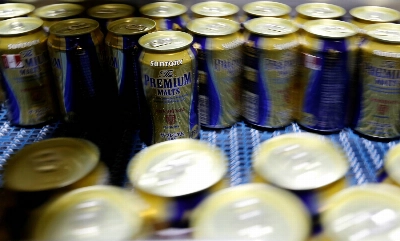The United States' economy is growing at a modest pace, with low unemployment and inflation. Normally, these conditions would strengthen a U.S. president's standing with the public. And yet Donald Trump's approval rating is well below 40 percent, as one would expect to see during a recession.
Of course, Trump's true popularity may be a little higher than the polls suggest, given that the same surveys failed to predict his victory last November. But even if Trump has maintained the support of his base, his post-inauguration honeymoon proved to be fleeting. Now, he is starting to lose the support of Republicans who had hoped that he would smooth his rough edges and grow once in office.
So far, Trump has failed to deliver any major legislative policy achievements. Nonetheless, he has helped the economy by rolling back President Barack Obama's damaging regulatory and administrative diktats in areas such as energy, education, finance and labor law. Moreover, even congressional Republicans who have distanced themselves from Trump's more extreme statements — some even before his inadequate response to the violence at a white supremacist rally in Charlottesville, Virginia — still support his main policy proposals, and are relying on him to sign conservative legislation that Obama vetoed.


















With your current subscription plan you can comment on stories. However, before writing your first comment, please create a display name in the Profile section of your subscriber account page.